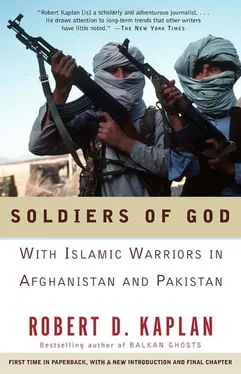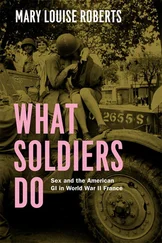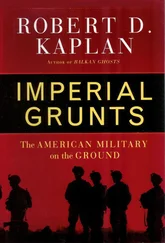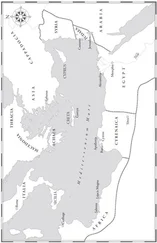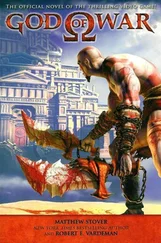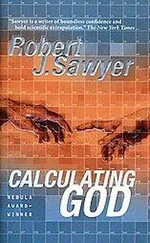Pakistan, in fact, could be a Yugoslavia in the making, but with nuclear weapons. In the Balkans the collapse of both communist authoritarianism and the Cold War security structure unleashed disintegrative tribal forces. But in South Asia globalization itself could bring collapse. South Asia illustrates that globalization is not a uniform coat of paint. It can lead to war and chaos as easily as to prosperity and human rights. Just as the media’s fascination with Poland, Hungary, and the rest of Central Europe after the collapse of the Berlin Wall obscured for a time the dissolution that had already begun in Yugoslavia, the current consternation over the extremist government in Afghanistan, Osama bin Laden, and the fighting in Kashmir obscures the core issue of South Asia: the institutional meltdown of Pakistan. And as was true of Yugoslavia, it is the bewildering complexity of ethnic and religious divisions that makes Pakistan so fragile. My comparison to 1980s Yugoslavia, a place that I also saw firsthand, is not casual. In both cases it was the very accumulation of disorder and irrationality that was so striking and that must be described in detail… not merely stated… to be understood.
Pakistan covers the desert frontier of the Subcontinent. British civil administration extended only to Lahore, in the fertile Punjab, near Pakistan’s eastern border with India; its Mogul architecture, gardens, and rich bazaars give Lahore a closer resemblance to the Indian cities of New Delhi and Calcutta than to any other place in Pakistan. But the rest of Pakistan… the rugged Afghan-border regions of Baluchistan and the Northwest Frontier Province, the alkaline wasteland of Sind, and the Hindu Kush and Karakoram Mountains embracing Kashmir… has never been subdued by the British or anyone else. This area was grossly underdeveloped compared with British India; the few entrepreneurs were Hindus, who fled after Partition, in 1947. Even Karachi, now Pakistan’s business center and a city of fourteen million riddled by sectarian violence, was only an isolated settlement on the Arabian Sea when the British departed. Karachi’s lack of the prideful identity and civilizing urbanity found in Lahore and the great cities of India helps to explain its current unrest. Islamabad, Pakistan’s sterile capital, with its vast, empty avenues lined with Mogul-cum-Stalinist structures, was not built until the 1960s.
When seven million Muslim refugees, fleeing India, created Pakistan, the role of the military became paramount, by necessity. The refugees were consumed by the need to manage enormous and unruly borderlands and by fear of their much larger, Hindu-dominated neighbor. Furthermore, with local tribal and ethnic identities so strong, civilian politics became a bureaucratic forum for revenge and unsavory tradeoffs. In the ancient tribal and feudal cultures of the region leaders bartered water wells and tracts of desert; in the new state they bartered flour mills, electricity grids, and transport systems.
Thinking purely in terms of blood and territory comes naturally in Quetta, a cinder-block jumble of shops whose outskirts are composed of walled tribal compounds and Afghan refugee camps. Since Afghanistan erupted into war in the late 1970s, and refugees poured across the border, Quetta has increasingly become an Afghan city inside Pakistan. Cheap, Western-style polyesters have taken over much of the Third World, but in Quetta nearly everyone still wears traditional shalwar kameez: baggy cotton pants and a long, flowing shirt, with a blanket over the shoulder for praying and sleeping. The Baluch are identified by their grandiose white turbans, the Pashtoons from southern Afghanistan by smaller, darker ones, and the Pashtoons from northern Afghanistan by flat woolen caps called pakols. In addition there are Asian-looking Uzbeks and Shia Hazaras… descendants of Genghis Khan’s Mongols who settled in central Afghanistan before becoming refugees here.
I had last visited Quetta in 1988, when it was a clean, relatively quiet place of fewer than 500,000 people. Now it was noisy and dirty, crowded with beggars and drug addicts, and its population was unofficially estimated at 1.2 million. A three-year drought afflicting southern Asia from Afghanistan to India had provoked an exodus from the surrounding desert into the city. The delightful water channels I remembered from the 1980s are now dry and filled with crud. Traveling outside Quetta, I saw empty riverbeds and dam catchments. Desperate men equipped with nothing but shovels dug ninety-foot-deep wells in the 110° heat, searching for water near Hanna Lake, which was once beautiful and full, and is now brown and diminished. With irrigation canals dry, aquifers are being depleted by overuse. Agriculture is in decline because of the water shortage, with cultivation reduced in many areas by 70 percent. Political disorder and mismanagement have blocked new industry and investment.
Pakistan’s Afghan-border region… 1,000 miles long and 100 miles wide… is a deathly volcanic landscape of crags and winding canyons where the tropical floor of the Subcontinent pushes upward into the high, shaved wastes of Central Asia, and where desert and mountain tribesmen replace the darker-skinned people in the cities. From Baluchistan north through the “tribal agencies” of Waziristan, Kurram, Orakzai, Khyber, Mohmand, and Bajaur… near Peshawar, the destitute capital of the Northwest Frontier Province… one finds an anarchic realm of highwaymen, religious and tribal violence, heroin laboratories, and weapons smuggling.
Here the religious extremism and disorder begot by two decades of war in Afghanistan merge with the troubles in Pakistan. With 148 million people, Pakistan is the world’s seventh largest nation, and its annual population-growth rate of 2.6 percent will make it the third most populous nation by 2050, behind India and China… if it still exists.
Afghanistan and Pakistan should be seen as one political unit. This is a result of Pakistan’s heavy involvement in the Afghan guerrilla struggle against Soviet occupation forces in the 1980s and in the rise of Afghanistan’s Taliban extremists afterward. But geography and British colonial history are factors too.
No border here could be natural. The transition from the steamy lowlands of the Subcontinent to the high moonscapes of Central Asia is gradual. The Pashtoons controlling the frontier zone of eastern and southern Afghanistan have never accepted the arbitrary boundary between Afghanistan and colonial India drawn in 1893 by the British envoy, Sir Mortimer Durand. Moreover, the British bequeathed to the Pakistanis the belt of anarchic territories they called tribal agencies, which lie to the east of the Durand Line. This had the effect of further confusing the boundary between settled land and the chaos of Afghanistan. Pakistani governments have always felt besieged… not only by India but also by Afghan tribesmen. In order to fight India, in the Pakistani view, it is necessary to dominate Afghanistan.
But this Pakistan has never been able to accomplish. The story of the lawless frontier, and of its emerging importance as a crisis point, is the story of failure: the failure of a sophisticated people from the industrial and agricultural plain of Punjab… the Pakistani military and political elite… to dominate an unreconstructed tribal people of the high desert.
When the explosions and gunfire awakened me in Quetta, I was staying at the home of a friend, Hamed Karzai, who from 1992 to 1994 had been Afghanistan’s first deputy foreign minister. At that time Afghanistan was governed by the mujahidin, the “holy warriors” who had defeated the Soviets. That was before the emergence of the radical Taliban (“Knowledge Seekers”), of whom Karzai is now an outspoken opponent. Not only was the iron gate outside his home bolted at night, with an armed Afghan on duty, but Karzai insisted that a former mujahidin commander guard the door of my room. I forgave Karzai his anxiety on my behalf. In July of last year his father was assassinated while walking home from evening prayers at a nearby mosque; the gunman escaped on a waiting motorbike. The murder, together with many others in Pakistan’s borderland, was attributed to the Taliban.
Читать дальше
